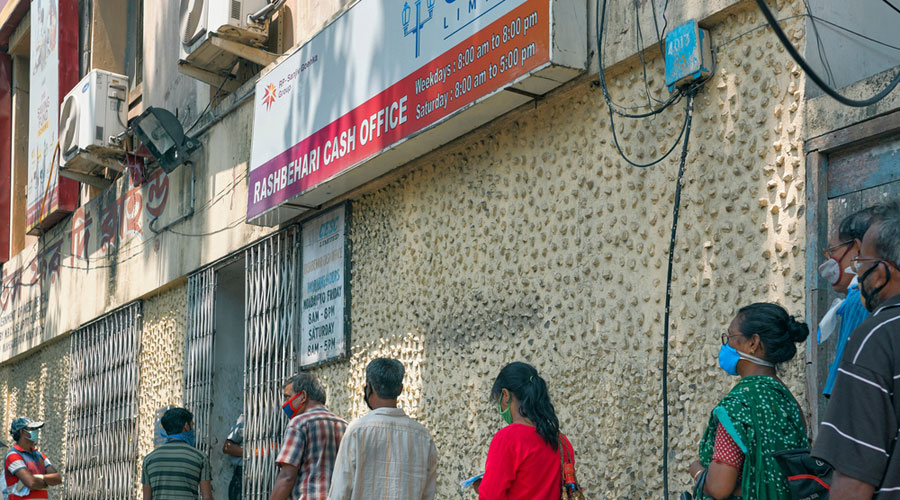CESC on Wednesday said it had revised the bills for June and would send them out with an explanation of the method of calculation printed on them.
Only those consumers who have not already paid the earlier bills are expected to pay the revised ones.
The announcement by the private power utility came almost a month after the Mamata Banerjee government had on July 20 advised consumers aggrieved over their bills against paying the amount and asked them to wait for revised bills.
The RP-Sanjiv Goenka Group-owned utility — which enjoys a virtual monopoly over 33 lakh consumers across 567sq km in Calcutta and its surrounding areas — also decided to “keep in abeyance” the dues for March, April and May, after hundreds of consumers cried foul over “absurdly high” bills.
The utility is yet to offer any clarity on what it would do with the sum kept in abeyance, except for the amount in June.
“Let’s keep in focus that this (the reconsideration) was done only by us as a consumer-friendly initiative. There have been parallels in other parts of the country, but nobody else tried doing what we are doing,” said Debasish Banerjee, CESC managing director (distribution).
The revised bills will be accompanied by a cover letter, in which CESC will explain the situation to the consumers.
The bills for June, issued in July, became the subject of countless jokes and memes on social media, with numerous notable civil society members joining in.
Prior to the rethink, the utility had been repeatedly asserting that the bills were based on actual meter readings and it had adjusted them with the previous ones drawn up on an average of the past six months because the lockdown had disrupted meter readings.
The average on which the past bills were drawn up was based on power consumption in the winter months, when air-conditioners and fans were not in use.
According to Banerjee’s estimates, the revised June bill would be a fraction of the total units consumed since March or April.
“For instance, if the total units consumed in the four months from March were 1,000 units, then we are placing each month’s consumption at 250 units…. The 250 units for June is all the consumer will have to pay for in the revised bill, in this example,” he said.
“Those who have already paid the previously issued June bill need not pay anything. The necessary adjustment for their payment made towards units presently kept in abeyance will be given subsequently. They too will not be denied of the benefit.”
Sources in the state government said the utility’s management started taking the measures after pressure intensified through calls from the “highest possible level” of the government.
Power minister Sobhandeb Chattopadhyay and Trinamul Congress’s de facto Number Two Abhishek Banerjee had issued statements, claiming credit, after the matter was picked up for agitation by not only all prominent non-Trinamul parties but also apolitical fora.
The July protests were the second instance in two months when CESC faced the ruling establishment’s — and people’s — rage. The earlier one was in May when CESC was unable for around a week to restore normality to some pockets after Cyclone Amphan had caused havoc.
In the wake of Amphan, Mamata repeatedly underscored that her government had nothing to do with the monopoly that was granted to the utility three decades ago.
“CESC had claimed to the government that absurdly high bills were few and far between and an aberration,” a senior state minister said.
“Nobody was questioning CESC for bills issued for higher than usual consumption in middle-income and high-income households during the lockdown months. A bill including the dues for those months would naturally be much higher. But bills with astronomical amounts, especially for low-income households with no ACs or other heavy appliances, simply cannot be justified,” said a senior minister.










